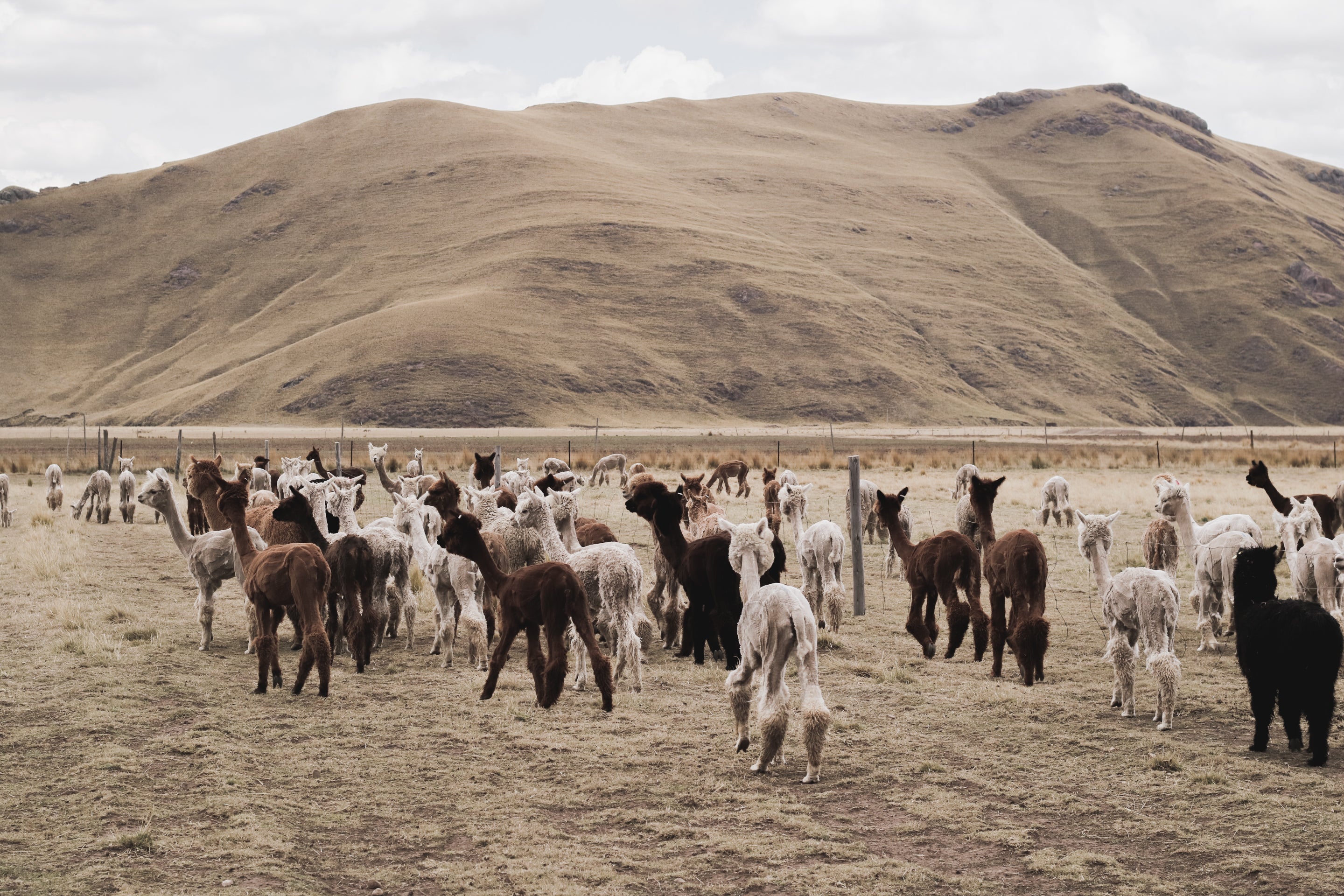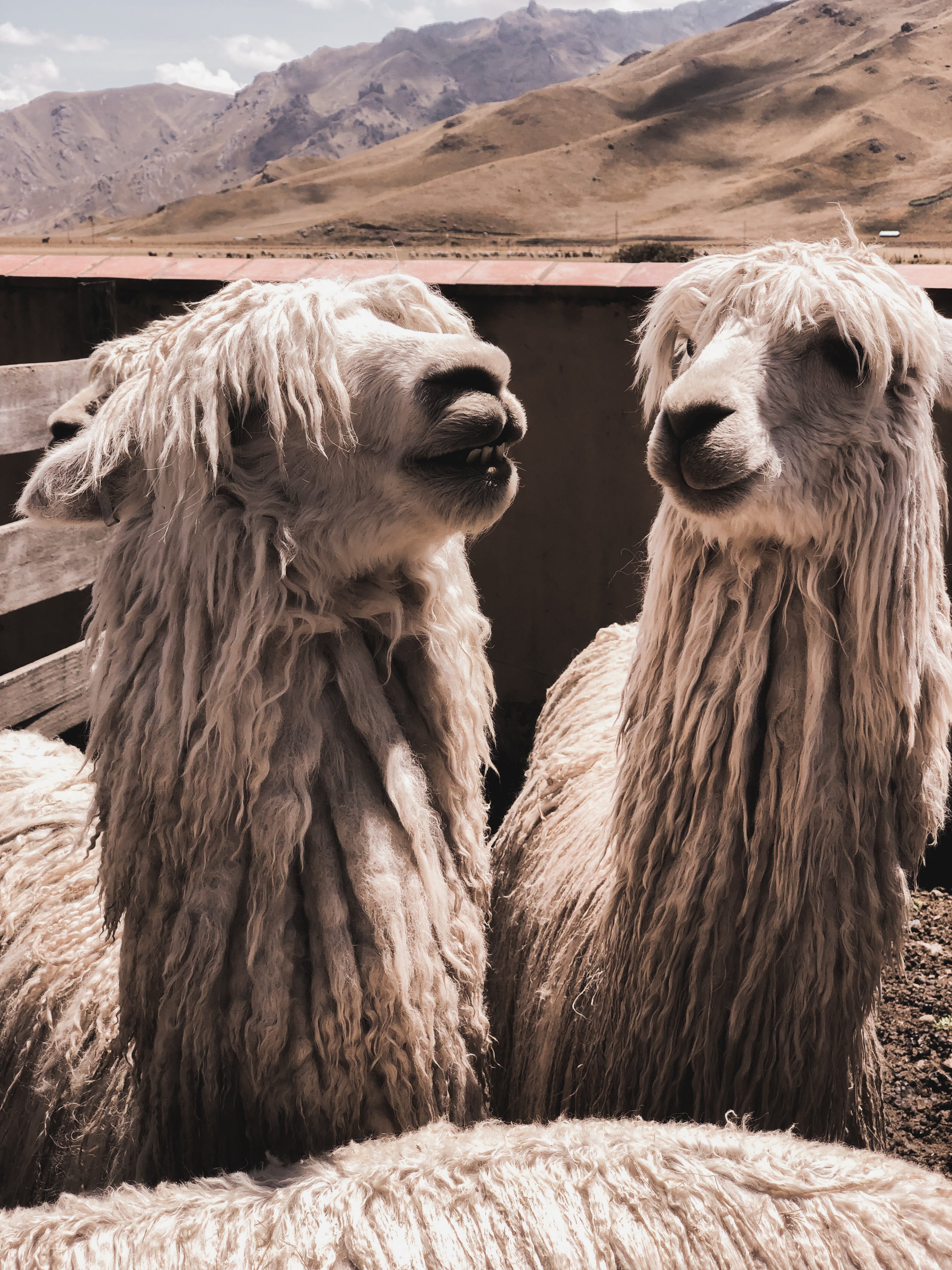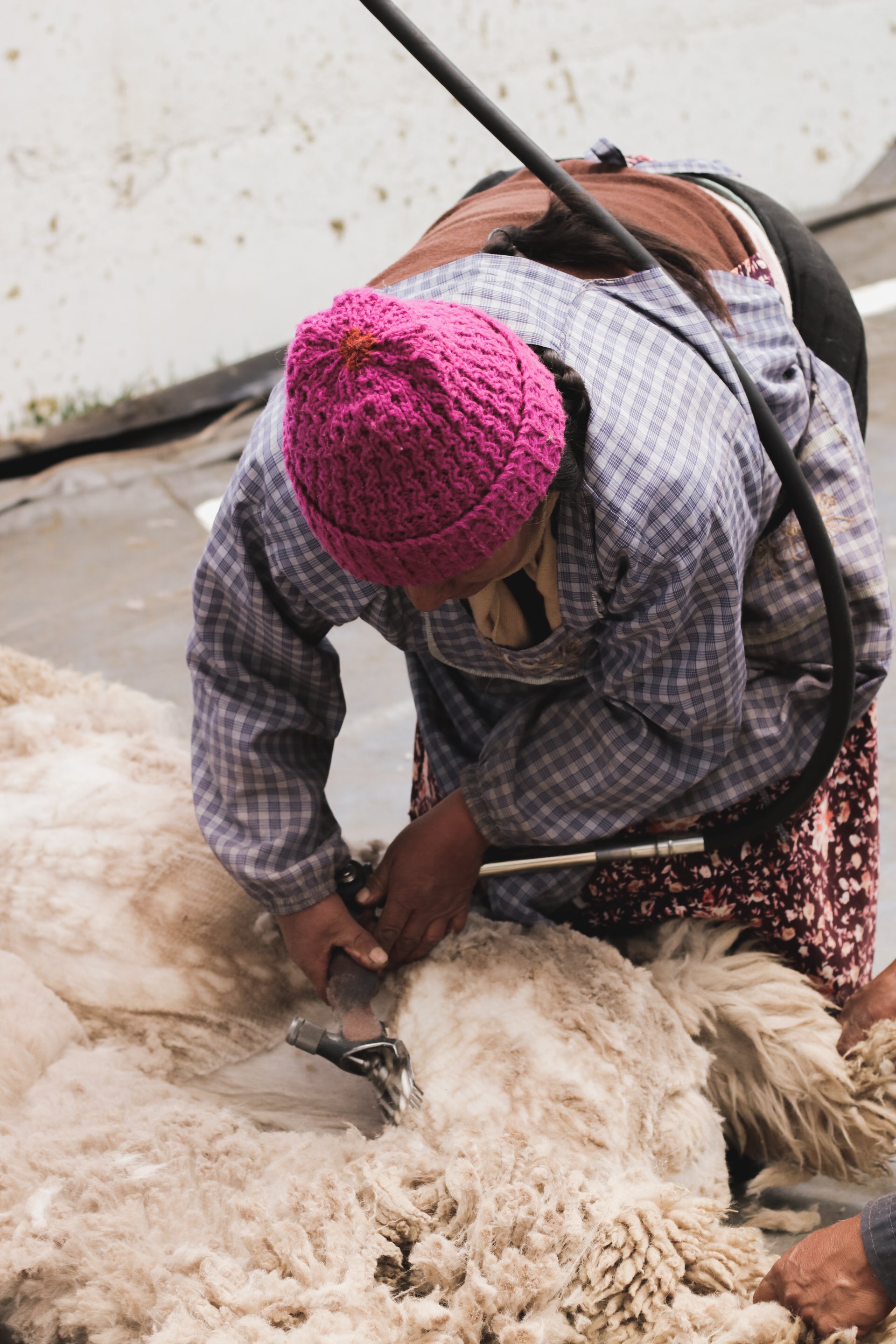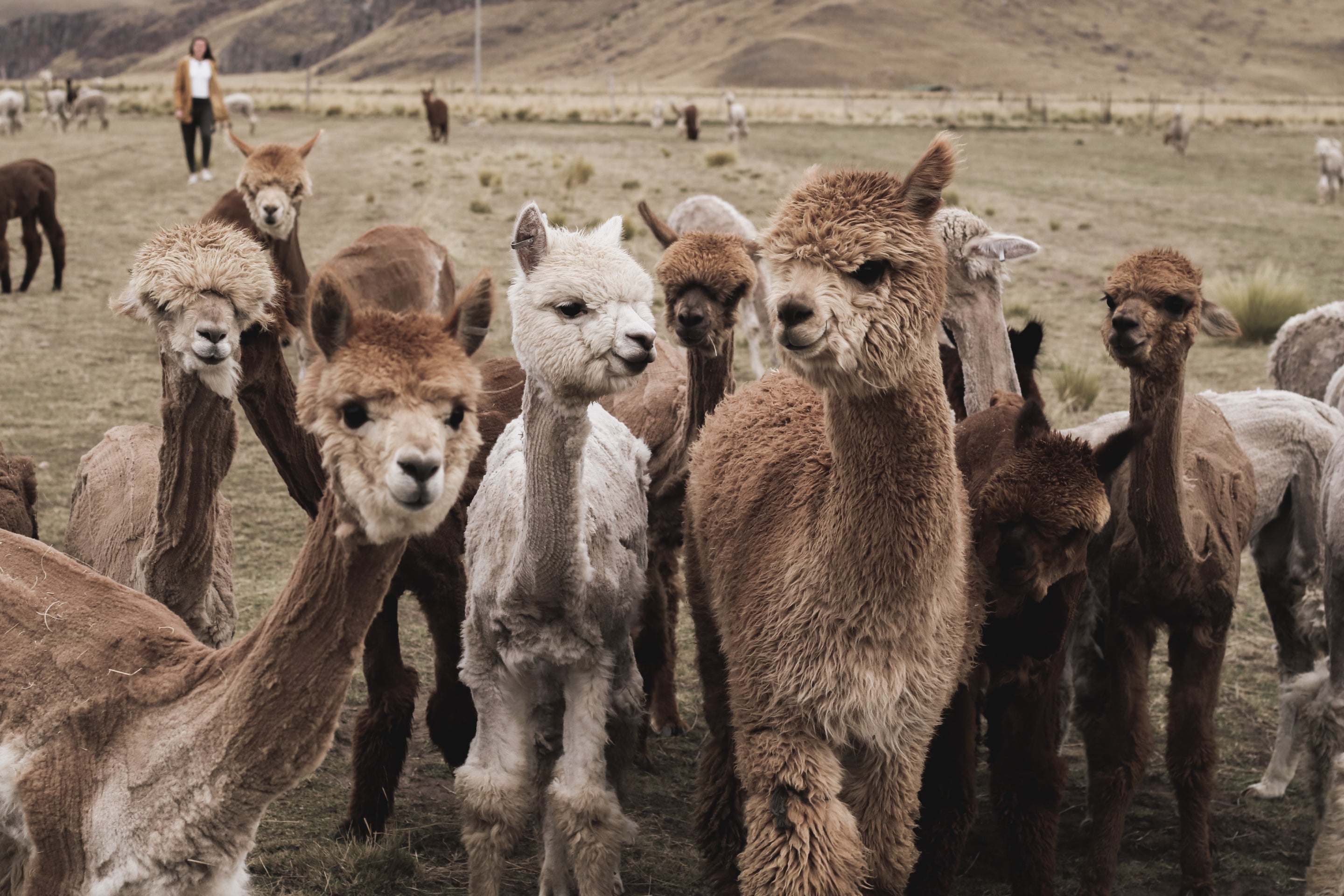
The fleecy coat of the Alpaca is renowned for being among the softest in the world. It has been used for centuries in the Andes Mountains of South America and by the Incas as a fabric for royalty. The long, silky Alpaca fleece is stretchy and delicate, with a smooth cuticle that is incredibly soft against the skin. Alpaca wool makes a lustrous, luxurious fabric and can be knitted as a pure fibre or blended with other fibres, such as cotton or silk, for either knitting or weaving. Its soft, silk-like qualities are embraced around the world.
Alpaca wool, known for its softness and warmth, is a natural fibre obtained from the domesticated alpaca species. The key difference between alpaca and llama wool lies in the fineness of the fibres, with alpaca wool being finer and softer. This exceptional fineness results in alpaca wool being lighter and more insulating than llama wool and other wools.
Alpaca wool's exceptional softness, warmth, and lightweight nature ensure unparalleled comfort. Its hypoallergenic properties cater to sensitive skin, while its durability guarantees long-lasting wear. With its timeless appeal and luxurious feel, an alpaca wool garment promises both style and practicality.


Is Alpaca Wool Hypoallergenic?
Alpaca wool is hypoallergenic, making it an excellent choice for those with sensitive skin. Alpaca fleece has a smoother shaft than goat fibres such as cashmere and mohair, or sheep wool that can be prickly against the skin. Unlike other fibres, alpaca wool lacks lanolin, a common irritant found in sheep's wool. This absence reduces the risk of allergic reactions and skin irritations. Its breathability allows for better moisture-wicking, keeping the skin dry and comfortable. For individuals with sensitivities, alpaca wool offers a cozy, itch-free alternative that provides both warmth and comfort in all seasons.
Is Alpaca Wool Difficult to Care For?
While alpaca wool requires gentle care due to its delicate nature, it is an extremely durable natural fibre. More durable than wool, it is strong and elastic, which means alpaca wool does not lose it’s shape easily.
Alpaca wool does not require regular washing - air your garment after wear, spot clean any marks and wash infrequently. When required, hand-washing in cool or tepid water with a mild detergent is recommended to preserve it’s softness and longevity. Avoid agitating or wringing the garment, instead, spin out excess water and dry flat on a towel. To prevent stretching, store alpaca wool items folded rather than hung. By following these care instructions, you can ensure your alpaca wool products remain luxurious and in excellent condition for years to come.
Why do alpacas need to be sheared, and is it ethical to do so?
Shearing alpacas is a necessary practice that, when approached responsibly, is not considered cruel. Alpacas' dense fiber coats require regular shearing to prevent overheating during warmer seasons and to harvest their valuable fleece for textiles. The key lies in the careful execution: experienced shearers should employ gentle techniques, proper restraint, and considerate timing to avoid stress or discomfort. This process also offers an opportunity for health assessment and intervention, ensuring the alpacas' overall welfare.
We endeavour to supply cruelty free, ethical products and have inspected the farms where our fibre is sourced from. We have monitored everything from the conditions the alpacas are kept in, to the sheering process and and after care of the animals.

